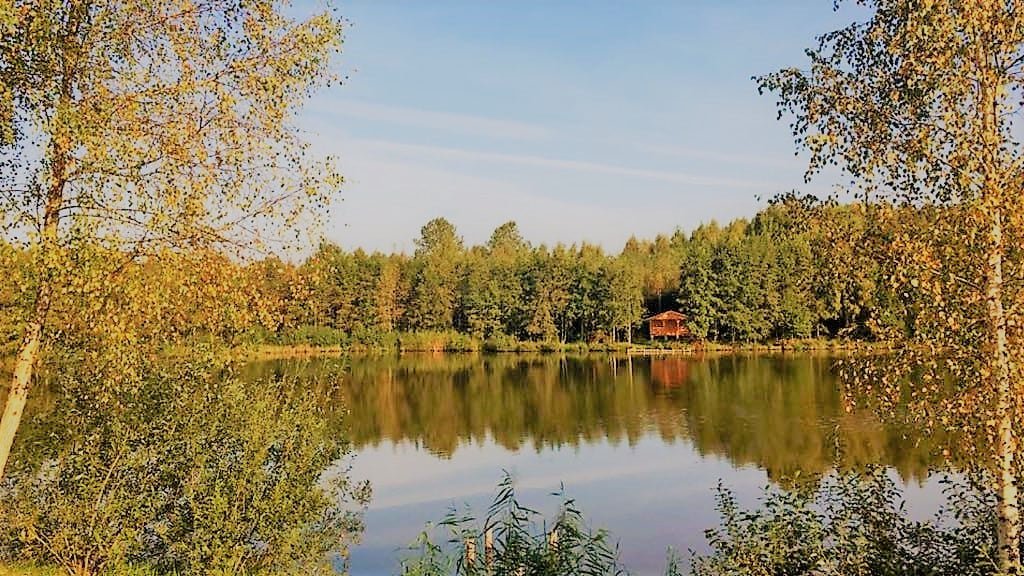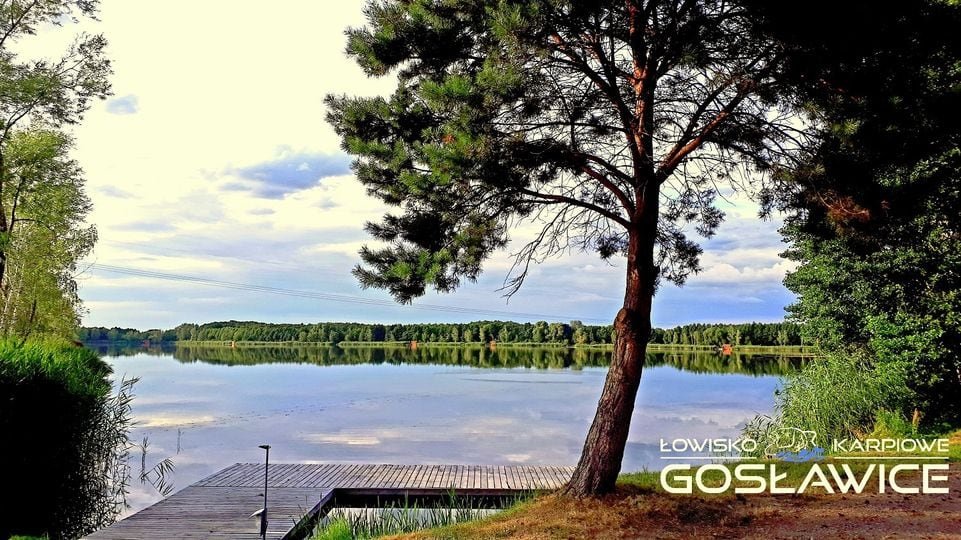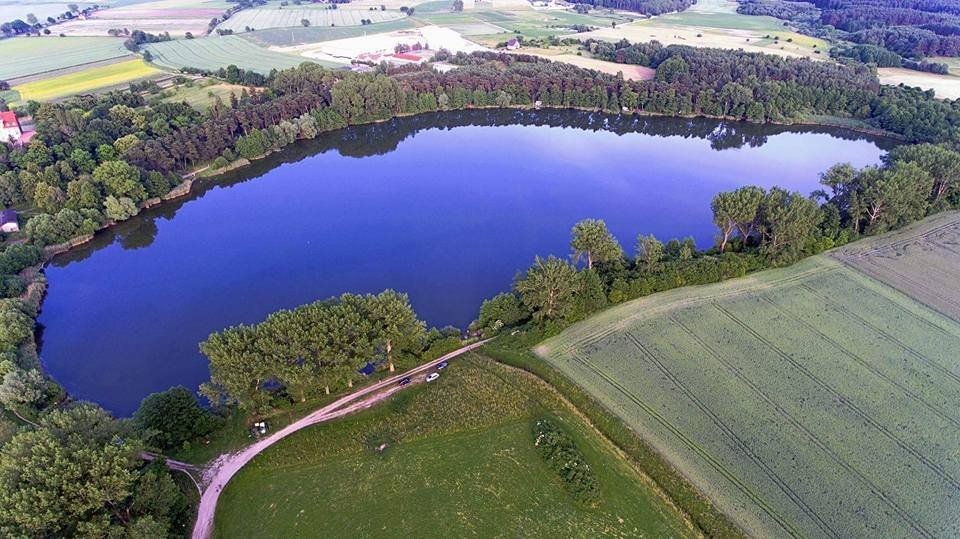Fishing in Poland
Poland offers plenty of fishing possibilities, as 3% of its surface is covered by water. You can find freshwater fishing in more than thousand different rivers, lakes and reservoirs and sea fishing in and on the shore of the 500 km long Baltic Sea. Freshwater fish include carp, tench, perch, eel, catfish, zander, pike, trout and salmon. This makes Poland one of the best countries for fishing throughout Europe. In order to legally fish in a particular fishery in Poland, Polish nationals need both a valid fishing rod licence and an additional permit. Importantly for visitors and tourists, foreigners do not need a Polish fishing rod licence and only a fishing permit to fish in a particular fishery is needed.
Licences & Regulations
Licences
Polish nationals require a fishing rod licence to fish in Poland. However, foreigners are allowed to fish without a fishing rod licence and thus without passing an exam. Additionally, children under 14 years old are allowed to fish without fishing rod licence in Poland, as long as they are accompanied and supervised by an adult that holds both a valid fishing rod licence and an additional fishing permit for the particular fishery.
Permits
It is important to know that all streams in Poland are owned by the state. Stillwaters are either privately owned or belong to the state. Fishing permits (Zezwolenie) can be obtained either from the Polish Angling Association (PZW) for the region you want to fish in or from another organisation/private individual for a particular fishery. A fishing permit for a particular fishery can often be found directly on the spot.
For state owned waters (all streams) you can get a fishing permit in Poland from the Polish Angling Association (PZW)
Fishing permits for stillwaters in Poland can be obtained from:
- the Polish Angling Association (PZW)
- an angling club
- a fishing shop
If you are fluent in Polish or come with a translator you can purchase a PZW-permit directly at an PZW office. You can find offices of the Polish Angling Association PZW (Polski Związek Wędkarski) in every district capital.
If you are not fluent in Polish the easiest way to obtain a PZW-permit is to visit a local fishing shop. Most fishing shops provide PZW-forms and will help to choose a suitable PZW-permit with you and help with filling out the forms. You will get a letter of referral that enables you to pay the fee. You can do this either by bank transfer or at a post office. After paying the fee the stamped letter of referral will serve as the valid PZW-fishing permit. The stamped letter of referral must always be carried whilst fishing and might be controlled by bailiffs from the SSR that are named by the local authority.
Different types of PZW-fishing permits
The Polish Angling Association PZW issues permits for:
- regional coarse fishing
- national coarse fishing
- regional game fishing
According to the duration and the type of fishing, fees for the PZW-fishing permit vary considerably. There are various choices, like daily or yearly validity periods and coarse or game fishing in 49 different regions.
A detailed table with all different options for the PZW-fishing permit can be found Here.
Some waters are not controlled by the PZW and require a fishing permit from the angling club or fishery owner directly.
Regulations
The fishing regulations in Poland are quite detailed. A version of the PZW regulations can be found Here. (in Polish).
Below are some of the key fishing regulations in Poland. Keep in mind that in contrast to waters controlled by the Polish Angling Association (PZW) other waters may have different local regulations.
Most importantly, you should be informed about size limits, daily catch limits and closed seasons. Closed seasons, size limits and daily catch limits depend on the particular region/fishery. However, before you go fishing to a particular fishery make sure your knowledge on the local fishing regulations is complete and up to date. Again, a visit to a local fishing shop might help to be informed and updated about recent changes.
You may also find information on the backside of your fishing permit or amongst the information provided by the body issuing the fishing permit.
General rules
Fishing rods must not be left unattended
Practicing catch & release is forbidden – except releasing fish due to size limits or closed season
It is forbidden to fish whilst standing on a bridge
It is forbidden to sell or to give caught fish to others
A fish hook remover must always be carried
A minimum distance of 50 meters has to be respected towards weirs, dams, fish ladders and sluices as well as fishnets and other fishing furnishings
Night fishing is generally allowed, except waters with trout or grayling and when boat fishing
Water contaminations have to be reported to the official authority
The number of hooks used must not exceed:
- 1 for coarse fishing
- 2 for fly fishing (max. diameter 30mm)
- 2 for spin fishing (max. 4 hook tips and max. diameter 30mm)
- 1 for ice fishing (max. 2 hook tips and max. diameter 20mm)
When catching a labelled fish that cannot be released:
- The label and some fish scales should be removed and kept
- Note fish species, length and weight of the fish
- Note location and date of catch
- Send all information, label and fish scales to the bailiff in charge
Boat fishing:
- Both sides of a boat used for fishing must be marked with registration plates, well-visible from the distance
- Be aware that leased fishing boats might lack registration plates
- Night fishing by boat is only allowed between June 1st and 30th of September
Usually the leader of the local authority sets up a voluntary bailiff system, which is called the SSR. Members of the SSR are authorised to:
- Check passports and fishing permits.
- Check the amount, size and weight of fish caught.
- Check the fishing equipment.
- Arrest anglers without license and/or permit
- Report fishing law violations to the police
More information about Polish fishing regulations can be found here.
Seasons
The carp fishing season in Poland generally runs from 1st March to 31st November although some variations do apply depending on the local district regulations and of course the weather as many lakes freeze over during the winter months. Night fishing by boat is only allowed between June 1st and 30th of September
Resources
Regulations in depth
Check List
- Fishing Permit (see above)
- Photo ID
- Travel Insurance - we recommend these providers
If you are driving:
- Green Card (Insurance) - contact your insurer
- Driving licence
- Vehicle Log Book
- GB Sticker (unless GB identifier is on your number plate)
- Be aware of road tolls & charges - see here for details
Recommended Waters
Recommended Service Partners
For the best deals and for Carp Circle assurance use our recommended partners:
Car Hire

Have a car waiting for you upon arrival. Great rates guaranteed.
Travel Insurance

Stay safe & stay covered. Best rates for European travel.
Flights

Daily budget flights in and out of all main European airports.
-
Licences & Regulations
Licences
Polish nationals require a fishing rod licence to fish in Poland. However, foreigners are allowed to fish without a fishing rod licence and thus without passing an exam. Additionally, children under 14 years old are allowed to fish without fishing rod licence in Poland, as long as they are accompanied and supervised by an adult that holds both a valid fishing rod licence and an additional fishing permit for the particular fishery.
Permits
It is important to know that all streams in Poland are owned by the state. Stillwaters are either privately owned or belong to the state. Fishing permits (Zezwolenie) can be obtained either from the Polish Angling Association (PZW) for the region you want to fish in or from another organisation/private individual for a particular fishery. A fishing permit for a particular fishery can often be found directly on the spot.
For state owned waters (all streams) you can get a fishing permit in Poland from the Polish Angling Association (PZW)
Fishing permits for stillwaters in Poland can be obtained from:
- the Polish Angling Association (PZW)
- an angling club
- a fishing shop
If you are fluent in Polish or come with a translator you can purchase a PZW-permit directly at an PZW office. You can find offices of the Polish Angling Association PZW (Polski Związek Wędkarski) in every district capital.
If you are not fluent in Polish the easiest way to obtain a PZW-permit is to visit a local fishing shop. Most fishing shops provide PZW-forms and will help to choose a suitable PZW-permit with you and help with filling out the forms. You will get a letter of referral that enables you to pay the fee. You can do this either by bank transfer or at a post office. After paying the fee the stamped letter of referral will serve as the valid PZW-fishing permit. The stamped letter of referral must always be carried whilst fishing and might be controlled by bailiffs from the SSR that are named by the local authority.
Different types of PZW-fishing permits
The Polish Angling Association PZW issues permits for:
- regional coarse fishing
- national coarse fishing
- regional game fishing
According to the duration and the type of fishing, fees for the PZW-fishing permit vary considerably. There are various choices, like daily or yearly validity periods and coarse or game fishing in 49 different regions.
A detailed table with all different options for the PZW-fishing permit can be found Here.
Some waters are not controlled by the PZW and require a fishing permit from the angling club or fishery owner directly.
Regulations
The fishing regulations in Poland are quite detailed. A version of the PZW regulations can be found Here. (in Polish).
Below are some of the key fishing regulations in Poland. Keep in mind that in contrast to waters controlled by the Polish Angling Association (PZW) other waters may have different local regulations.
Most importantly, you should be informed about size limits, daily catch limits and closed seasons. Closed seasons, size limits and daily catch limits depend on the particular region/fishery. However, before you go fishing to a particular fishery make sure your knowledge on the local fishing regulations is complete and up to date. Again, a visit to a local fishing shop might help to be informed and updated about recent changes.
You may also find information on the backside of your fishing permit or amongst the information provided by the body issuing the fishing permit.
General rules
Fishing rods must not be left unattended
Practicing catch & release is forbidden – except releasing fish due to size limits or closed season
It is forbidden to fish whilst standing on a bridge
It is forbidden to sell or to give caught fish to others
A fish hook remover must always be carried
A minimum distance of 50 meters has to be respected towards weirs, dams, fish ladders and sluices as well as fishnets and other fishing furnishings
Night fishing is generally allowed, except waters with trout or grayling and when boat fishing
Water contaminations have to be reported to the official authority
The number of hooks used must not exceed:
- 1 for coarse fishing
- 2 for fly fishing (max. diameter 30mm)
- 2 for spin fishing (max. 4 hook tips and max. diameter 30mm)
- 1 for ice fishing (max. 2 hook tips and max. diameter 20mm)
When catching a labelled fish that cannot be released:
- The label and some fish scales should be removed and kept
- Note fish species, length and weight of the fish
- Note location and date of catch
- Send all information, label and fish scales to the bailiff in charge
Boat fishing:
- Both sides of a boat used for fishing must be marked with registration plates, well-visible from the distance
- Be aware that leased fishing boats might lack registration plates
- Night fishing by boat is only allowed between June 1st and 30th of September
Usually the leader of the local authority sets up a voluntary bailiff system, which is called the SSR. Members of the SSR are authorised to:
- Check passports and fishing permits.
- Check the amount, size and weight of fish caught.
- Check the fishing equipment.
- Arrest anglers without license and/or permit
- Report fishing law violations to the police
More information about Polish fishing regulations can be found here.
-
Seasons
The carp fishing season in Poland generally runs from 1st March to 31st November although some variations do apply depending on the local district regulations and of course the weather as many lakes freeze over during the winter months. Night fishing by boat is only allowed between June 1st and 30th of September
-
Resources
-
Check List
-
Recommended Waters
Getting There
Flights

Daily budget flights in and out of all main European airports.
Insurance
Travel Insurance

Stay safe & stay covered. Best rates for European travel.
Driving
Car Hire

Have a car waiting for you upon arrival. Great rates guaranteed.
Fishing Poland
Poland offers plenty of fishing possibilities, as 3% of its surface is covered by water. You can find freshwater fishing in more than thousand different rivers, lakes and reservoirs and sea fishing in and on the shore of the 500 km long Baltic Sea. Freshwater fish include carp, tench, perch, eel, catfish, zander, pike, trout and salmon. This makes Poland one of the best countries for fishing throughout Europe. In order to legally fish in a particular fishery in Poland, Polish nationals need both a valid fishing rod licence and an additional permit. Importantly for visitors and tourists, foreigners do not need a Polish fishing rod licence and only a fishing permit to fish in a particular fishery is needed.


